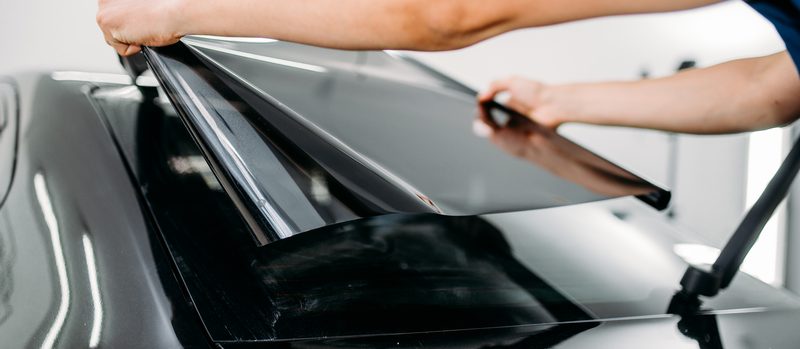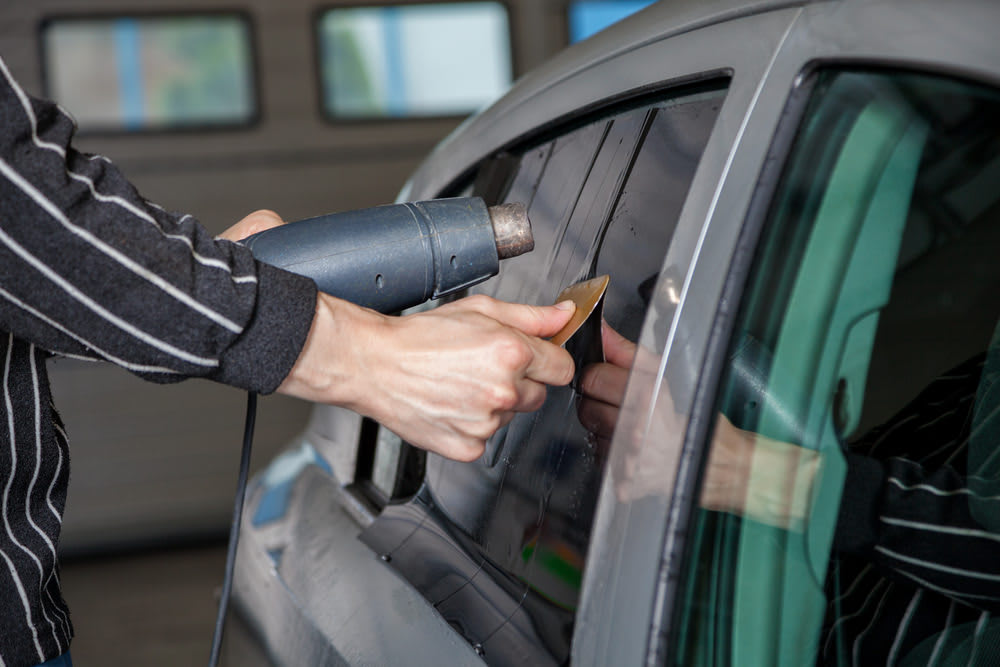Dyed and metalized window tint were the main types of films for many years. Now, newer products have entered the market. It’s important to learn about the pros and cons of each as you determine which window tint product makes the most sense for the application and your budget. Below are some of the differences between ceramic window tinting and traditional films.
Basic Differences Between Regular and Ceramic Window Tint
To start, let’s look at the basics of how these two different products are made. After that, we’ll go through the pros and cons of ceramic vs. regular window tint. As always, your best is to speak to licensed, experienced window tinting contractors who can provide an insider perspective on which one makes the most sense for your project in terms of your overall goals, the scope of the project, the level of durability and maintenance desired, as well as your project budget.

Regular Window Tint:
Regular or standard window tinting products are used almost exclusively for sun protection as well as privacy. Thin laminate, or polyester sheets, are dyed to specific gradations, from lighter- to darker. Usually, these are made in browns, grays or into the black spectrum, but can also include some amount of color variation. While it does block the sun, these products are not known for efficiency overall as UV rays still enter the interior and elevate temperatures.
To protect the window film, the dyed sheets are covered with a scratch-resistant coating. While this can protect the film from regular wear and tear, it is easily compromised when hard or sharp objects scratch or gouge it, and will eventually wear thin overtime. Advances in technology are improving this “weakness,” so there are some regular window tinting products that have lifetime warranties (although the warranty parameters are quite specific and narrow in scope).
The interesting thing about window tinting is that while it blocks the sun, reducing solar heat gain on the interior of the building, home, or your cars, tinting products increase the thermal stress on the glass products on which it’s applied. Therefore, you always want to make sure you use a product that is approved by the glass manufacturer. Otherwise, you risk voiding their warranty if tinting-related damage occurs to the glass or widows.
When it comes to cost, regular window tinting is your more affordable bet. However, remember that it isn’t as durable. There’s a chance you’ll have to re-tint again over the years if the product is scratched or torn, which could mean you save money at the outset but wind up spending more over the long-term.
 Ceramic Window Tinting:
Ceramic Window Tinting:
Ceramic window tinting products are slightly different. Ceramic window tinting is considered the top of the line in the window film options. It uses the same types of thin, sheets as regular window film, but these sheets are coated with ceramic particles as the result of emerging, nano-ceramic technology.
While invisible to the naked eye, they reflect the sun, so they reject UV and sun glare, as well as heat. Ceramic window film also comes in varying shades, so consumers benefit from whatever level of privacy and security desired. Because there is no metal involved (as with metallic window film, which is excellent at blocking UV rays and sun glare), ceramic window films do not interfere with cellular or gadget wi-fi or cell tower reception.
In laboratory studies, ceramic window tint outperforms all of the other window tinting products on the market in terms of:
- Visibility
- Sun glare reduction
- Heat absorption/reducing solar heat gain
- Infrared rejection
- UV ray rejection
- Structural stability
Looking for the Best Place for Ceramic Window Tinting in the Monmouth County, NJ Area?
AutoWorks is an automotive electronics shop that also offers window tinting services to towns in the Monmouth County area. Service towns include: Little Silver, Red Bank, Middletown, Tinton Falls, Oceanport, Keyport, Keansburg, Highlands, Matawan, Long Branch, Hazlet, Atlantic Highlands, West Long Branch, Fair Haven, and many more. To learn more about our products and installation services, contact us today at 732-671-0225 or visit the website.
Other Posts:
Ceramic Window Tint in Monmouth County | Benefits of Going Ceramic
